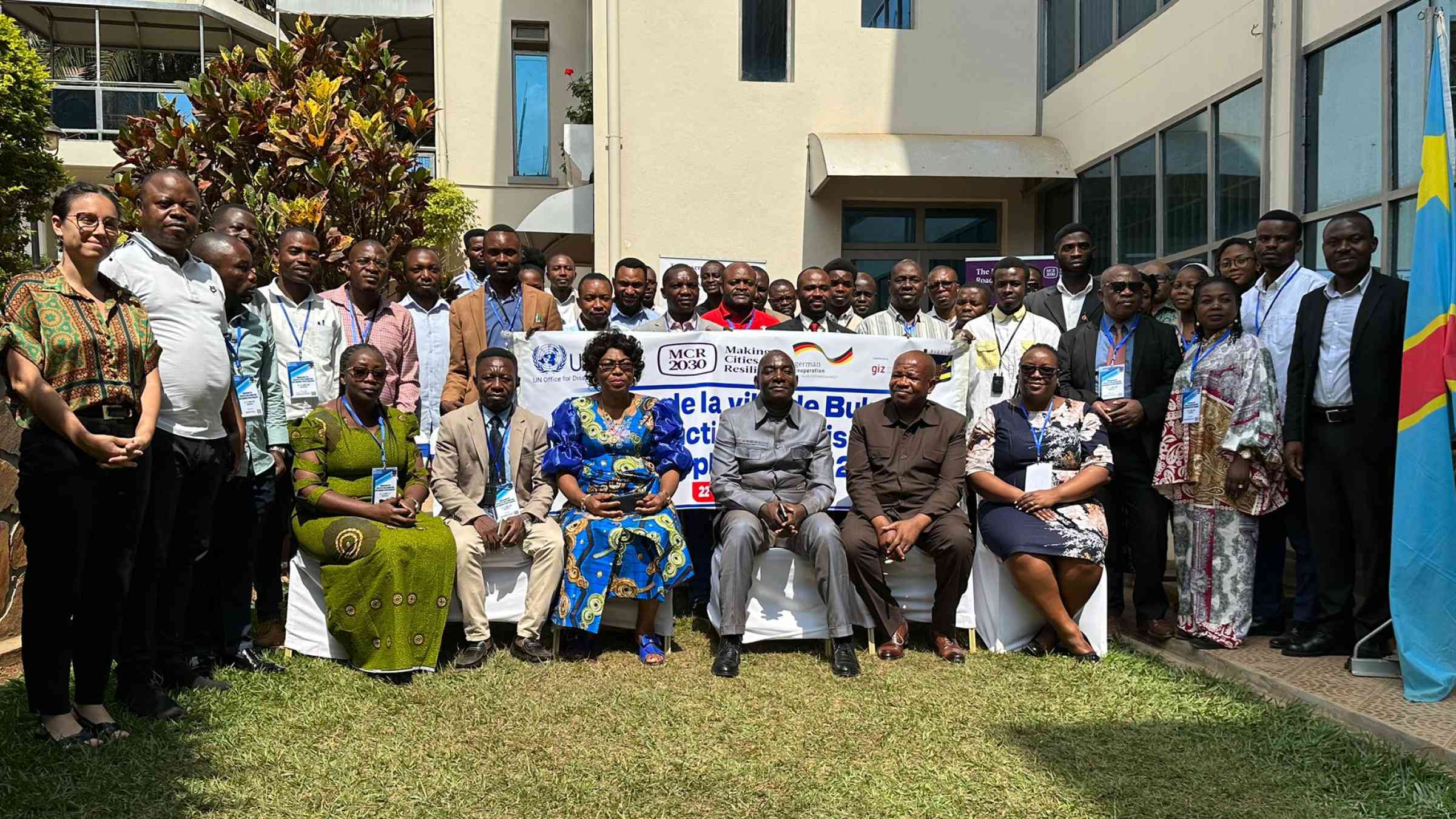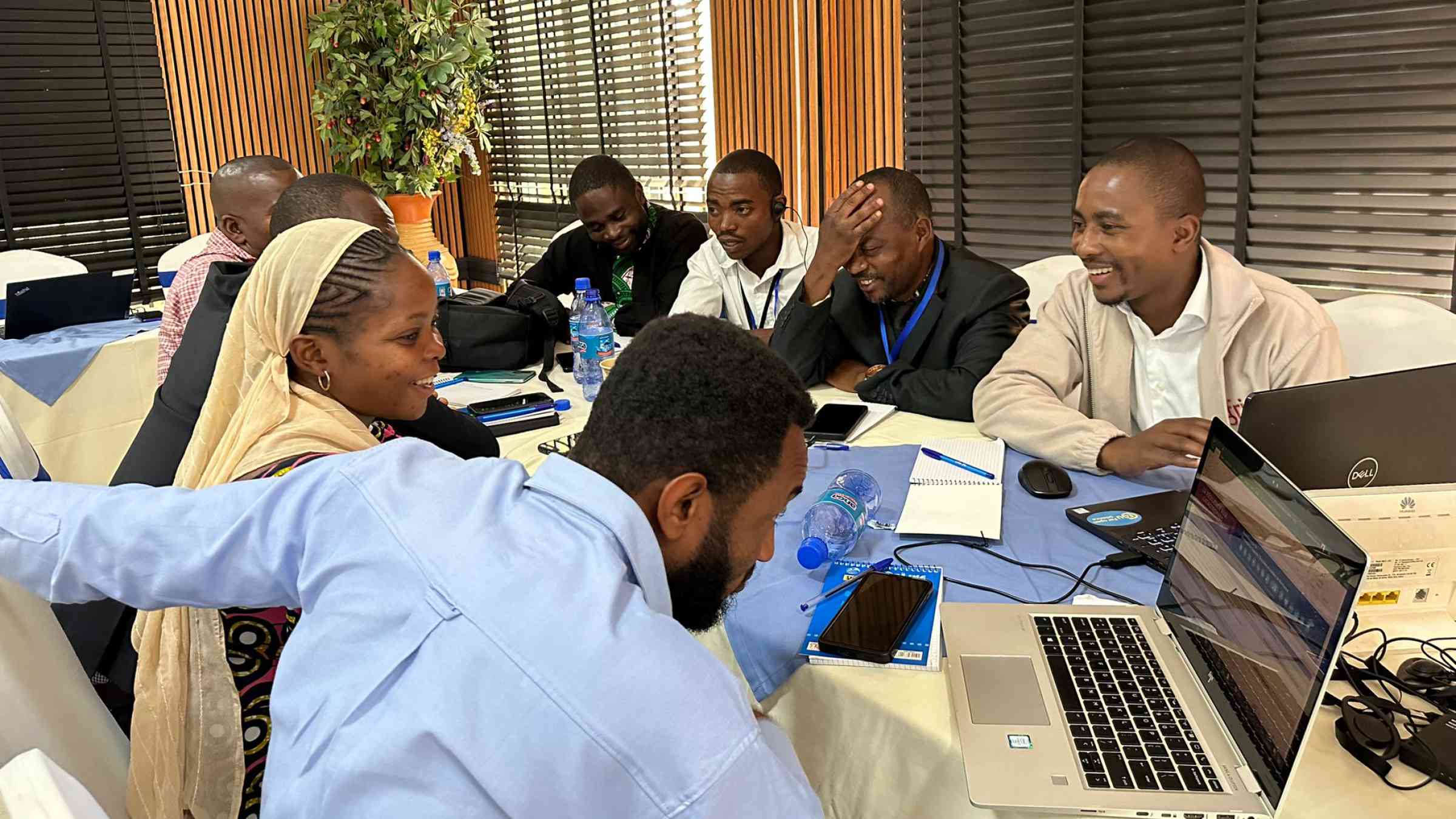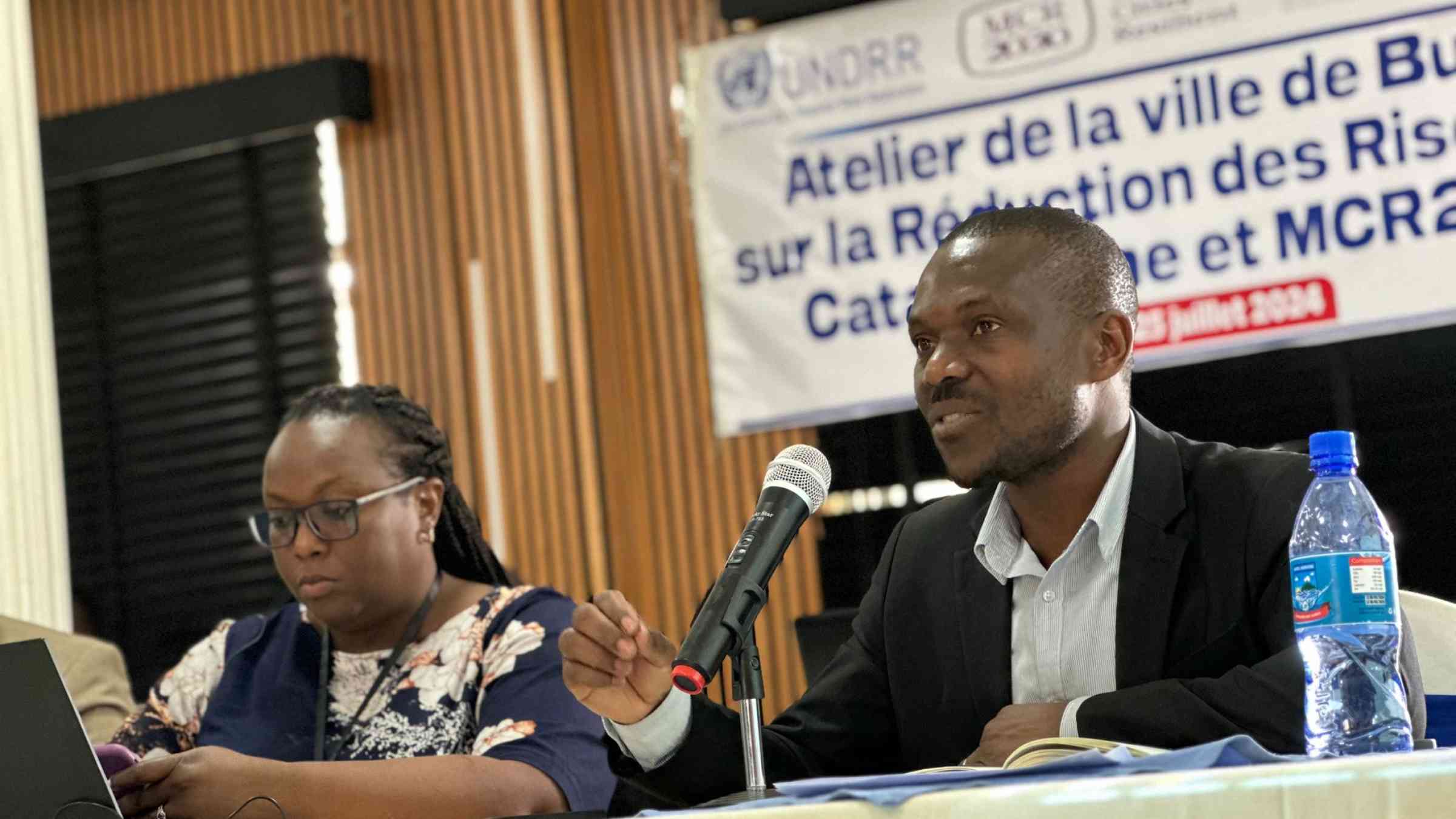Bukavu advances on the path to disaster resilience.

The city of Bukavu (Democratic Republic of Congo) faces numerous natural hazards, including floods, earthquakes, landslides, fires, and methane gas emissions from Lake Kivu. Rapid urbanization has exacerbated these risks, leaving the city vulnerable to disasters. Recognizing these challenges, the city's leadership has shown a strong commitment to resilience.
With the support of the United Nations Office for Disaster Risk Reduction (UNDRR) and funded by the Deutsche Gesellschaft für Internationale Zusammenarbeit (GIZ) under the Resilience Initiative Africa project, the city of Bukavu recently hosted a four-day workshop to assess its resilience, identify vulnerabilities, and develop strategies for reducing disaster risk.
The workshop, attended by participants from various institutions, focused on utilizing the Disaster Resilience Scorecard for Cities to assess the city's current situation and identify areas for improvement. Concrete actions will be developed to form Bukavu's disaster risk reduction (DRR) strategy and action plan. Key resources, like the CIRRINA center ('Centre d'Information et de Recherche sur les Risques d'origine Naturelle' or 'Information and Research centre on Natural hazards') will be leveraged, and measures for the implementation and monitoring and of the strategy will be put in place.

Mayor Zenon Karumba emphasized the significance of the workshop, stating, "Resilience is not just a goal; it's a necessity for the survival and prosperity of our city. The progress we make here will have a lasting impact on the safety and well-being of our citizens."
It is important to note that Bukavu was able to take an important step towards resilience, by making progress from Stage B, "knowing better," to Stage C, "planning better" on the MCR 2030 resilience roadmap, which will enhance its disaster risk reduction capacities.
Appreciating the workshop, Anuarite Cizungu, Finance Officer at Bukavu Town Hall, stated, "Through this workshop, I discovered the Sendai Framework and the Scorecard tool, which will enable us to advance in preventing and mitigating disaster risks."
Reflecting on the collective responsibility to increase disaster risk reduction knowledge, Petronie Kangela Makope, Head of Division at the Provincial Division of Social Affairs, remarked that, "We have a duty to raise awareness. We can start by sensitizing people around us to ensure that they are well informed about disaster risks."
Speaking at the workshop, the Director Disaster Risk Management Unit, Mr Francis Alwende remarked, "Through the MCR2030, we have learnt from others, and very soon, we will also be able to show others the way."

To reach this stage 'C', the city must prioritize the development and endorsement of a comprehensive Disaster Risk strategy. Encouragingly, a prevailing sense of determination and cooperation was evident among all stakeholders, underscoring a collective commitment to attaining this significant milestone.
"The disasters we face are well-known, but with the right strategies and a collective effort, we can build a more resilient future for our city." - Mayor Zenon Karumba.
The GIZ Resilience Initiative Africa (RIA) project, implemented by the Deutsche Gesellschaft für Internationale Zusammenarbeit (GIZ) GmbH, in partnership with the African Union and the United Nations Office for Disaster Risk Reduction, focuses on strengthening the resilience of African communities to disaster risks and the impacts of climate change.
The Making Cities Resilient 2030(MCR2030) initiative is a global movement striving to empower cities to become resilient in the face of increasing disaster risks. By providing cities with a roadmap, tools, and guidance, MCR2030 mobilizes local action and fosters collaboration to build safer and more sustainable urban environments for the future.